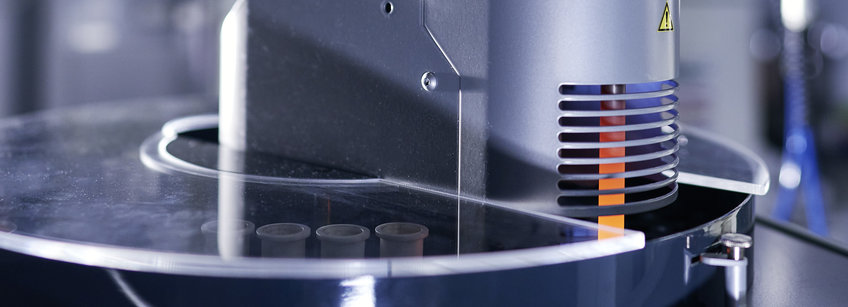
Routine Measurements & Analyses (RoMA)
Chemical analysis of soil, sediment and water samples
Research into biogeochemical cycles and processes involves the investigation of various chemical elements and their compounds and the calculation of their contents in the compartments of different ecosystems.
As a service laboratory, we provide scientists with analytical data on the exact proportions of carbon, nitrogen, hydrogen, sulphur, phosphorus and other elements in the soil, soil water or vegetation.
The majority of our analyses involve the determination of carbon and nitrogen content in a variety of different samples: Soils, sediments, plant litter, plants, rock fragments, carbonates, charcoal and other solid materials. In addition, there are analyses of dissolved organic compounds and soluble inorganic ions in various matrices.
With the precise quantification of organic and inorganic carbon, conclusions can be made about the effects of land use, management and biodiversity on soil organic carbon (SOC) and dissolved organic carbon (DOC).
Such studies provide information on the variability of soil carbon and how these stocks can influence regional and global carbon sources and sinks.
Additional measurments performend in RoMA include:
- Analysis of hydrogen and sulphur contents in sediments, soils, and organics, providing information on the family of chemical compounds and the biological availability
- Analysis of cations and anions using ion exchange chromatograghy and flow injection analysis
- Quantification of mobile, easlily available, or microbial fractions of carbon and nitrogen in water samples and individual soil fractions
- Analysis of soluble carbon and nitrogen in dissolved organic and inorganic form
The quality of our measurement data is continuously monitored. The RoMA laboratory participates in the annual interlaboratory comparison test of the VDLUFA (Association of German Agricultural Testing and Research Institutes) and is certified for carbon and nitrogen quantification in soil samples.
Our team ensures careful processing of the samples. Through close cooperation with the research and project teams at the institute, we enable timely analyses. For this purpose, we have a versatile instrumental analysis technology at our disposal, which ensures both excellent performance and a high sample throughput.